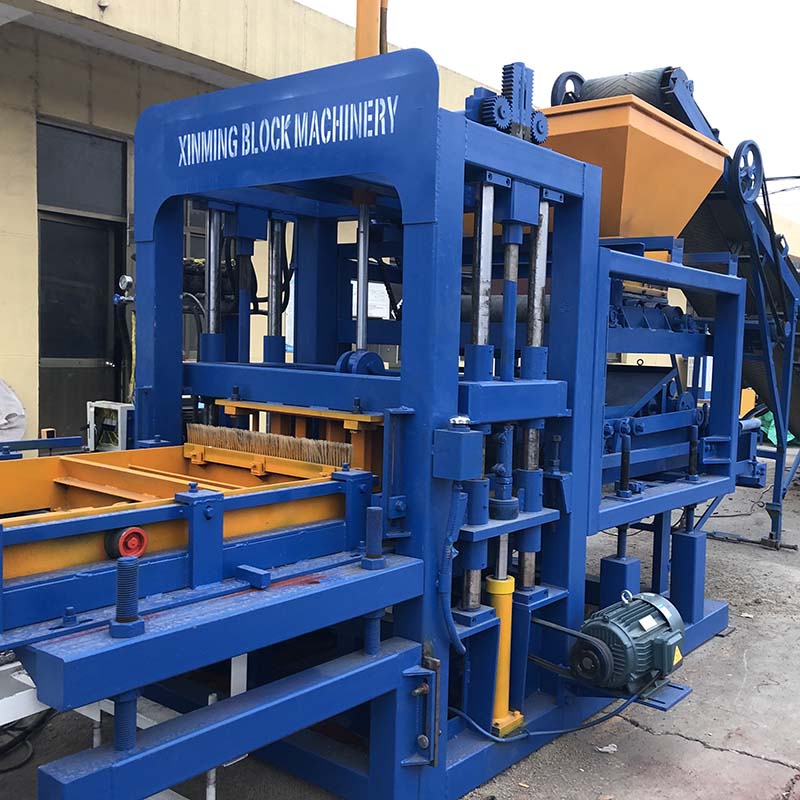
Image source:Aiwei block machine
Introduction
The construction industry in Africa is undergoing a transformative shift towards sustainability, driven by the need for eco-friendly building materials, affordable housing, and resilient infrastructure. Brick making machines have emerged as a key player in this paradigm shift, offering numerous advantages that align with the principles of sustainable building. This article explores the multifaceted benefits of brick making machines for sustainable construction in Africa.
1. The Sustainability Imperative in African Construction
Sustainable construction practices are gaining traction in Africa, addressing pressing challenges such as urbanization, climate change, and housing shortages.
- Urbanization Challenges: Rapid urbanization necessitates sustainable building to accommodate growing populations.
- Climate Change Resilience: Sustainable construction reduces the environmental impact and enhances climate resilience.
- Affordable Housing: Sustainable materials and methods contribute to affordable housing initiatives.
2. Brick Making Machines: A Sustainable Alternative
Traditional brick-making methods often involve resource-intensive processes and high emissions. Brick making machines offer an eco-friendly alternative.
- Resource Efficiency: Brick machines optimize raw material usage, minimizing waste.
- Reduced Carbon Footprint: Modern kilns and energy-efficient machines reduce emissions.
- Longevity: Bricks produced by machines are durable, reducing the need for replacements.
3. Energy Efficiency in Brick Production
Energy-efficient brick making machines contribute to sustainable building practices by minimizing energy consumption.
- Modern Kilns: Advanced kiln technologies require less energy for firing bricks.
- Insulation Properties: Bricks produced by machines often have superior insulation properties, reducing heating and cooling energy needs in buildings.
4. Consistency and Quality Control
Brick making machines ensure consistent quality, reducing construction defects and wastage.
- Uniform Dimensions: Automated machines produce bricks with precise dimensions, facilitating construction.
- Quality Assurance: Automated processes reduce the risk of human errors in brick production.
5. Affordability and Accessibility
Brick making machines make quality bricks more affordable and accessible, supporting affordable housing initiatives in Africa.
- Economies of Scale: Machine-produced bricks are cost-effective, enabling the construction of affordable housing units.
- Local Production: Machines promote localized brick production, reducing transportation costs.
6. Job Creation and Skill Development
While automation plays a significant role, brick making machines also create employment opportunities and support skill development.
- Machine Operators: Operators are needed to run and maintain brick making machines.
- Skill Diversification: Brick production provides opportunities for skill development in construction-related trades.
7. Versatility in Design and Applications
Brick making machines offer versatility in design and applications, accommodating various architectural styles and construction needs.
- Customized Designs: Machines can produce bricks in various shapes, sizes, and colors, enhancing design possibilities.
- Interlocking Bricks: Interlocking brick technology, often associated with machines, offers structural stability and earthquake resistance.
8. Supporting Sustainable Housing Projects
Brick making machines are instrumental in supporting sustainable housing projects across Africa.
- Government Initiatives: Governments are increasingly partnering with brick makers to support sustainable housing projects.
- NGO Collaborations: Non-governmental organizations collaborate with brick manufacturers to provide eco-friendly materials for humanitarian projects.
9. Case Studies: Sustainable Building Success Stories
Explore case studies from African nations where brick making machines have been used to achieve sustainable construction objectives.
- South Africa’s Eco-Friendly Housing: South Africa’s initiatives to build eco-friendly and affordable housing using machine-produced bricks.
- Rwanda’s Sustainable Infrastructure: Rwanda’s infrastructure projects incorporating sustainable brick production practices.
10. Challenges and Future Prospects
While the advantages of brick making machines for sustainable building are evident, challenges and future prospects must be considered.
- Environmental Regulations: Compliance with environmental regulations remains a challenge.
- Research and Development: Ongoing research is essential for developing sustainable brick materials and technologies.
Conclusion: A Sustainable Future with Brick Making Machines
The advantages of brick making machines for sustainable building in Africa are far-reaching, addressing environmental, economic, and social aspects of construction. As Africa continues to urbanize and seek sustainable solutions to its housing and infrastructure needs, brick making machines will play a pivotal role in shaping a resilient and eco-friendly built environment. By embracing the advantages they offer, Africa is not just building structures but also a more sustainable and prosperous future.
